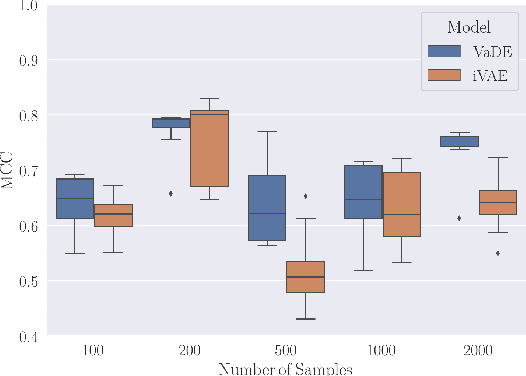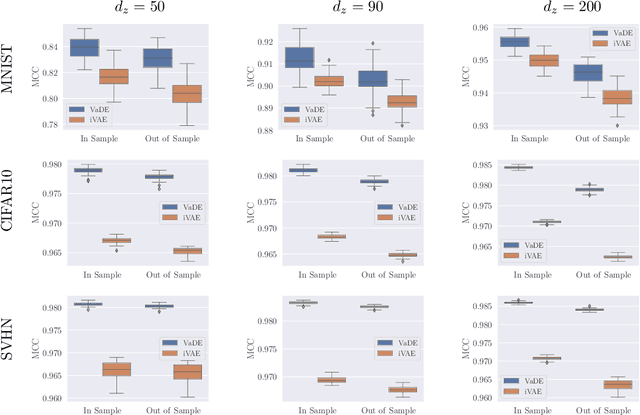I Don't Need $\mathbf{u}$: Identifiable Non-Linear ICA Without Side Information
Paper and Code
Jun 09, 2021



In this work we introduce a new approach for identifiable non-linear ICA models. Recently there has been a renaissance in identifiability results in deep generative models, not least for non-linear ICA. These prior works, however, have assumed access to a sufficiently-informative auxiliary set of observations, denoted $\mathbf{u}$. We show here how identifiability can be obtained in the absence of this side-information, rendering possible fully-unsupervised identifiable non-linear ICA. While previous theoretical results have established the impossibility of identifiable non-linear ICA in the presence of infinitely-flexible universal function approximators, here we rely on the intrinsically-finite modelling capacity of any particular chosen parameterisation of a deep generative model. In particular, we focus on generative models which perform clustering in their latent space -- a model structure which matches previous identifiable models, but with the learnt clustering providing a synthetic form of auxiliary information. We evaluate our proposals using VAEs, on synthetic and image datasets, and find that the learned clusterings function effectively: deep generative models with latent clusterings are empirically identifiable, to the same degree as models which rely on side information.
 Add to Chrome
Add to Chrome Add to Firefox
Add to Firefox Add to Edge
Add to Edge